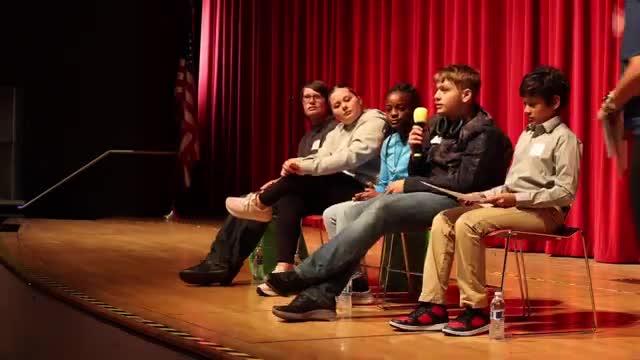Teachers Embrace AI to Transform Student Learning Experience
November 11, 2024 | Middletown City, School Districts, Ohio
This article was created by AI summarizing key points discussed. AI makes mistakes, so for full details and context, please refer to the video of the full meeting. Please report any errors so we can fix them. Report an error »

In a recent government meeting, participants engaged in a lively discussion about the integration of artificial intelligence (AI) in education and its potential to enhance learning experiences. Students shared their personal experiences with AI, highlighting its usefulness in various aspects of their daily lives, from navigating routes to tracking progress in sports like tennis.
One student emphasized the importance of personalized learning, suggesting that AI could help tailor educational experiences to individual learning styles. They proposed that teachers could leverage AI to create more engaging and interactive lessons, moving away from traditional methods that often feel stale and uninspiring. The idea of using AI to simulate conversations with historical figures was particularly well-received, as it could transform mundane research tasks into dynamic learning opportunities.
Participants also noted a gap in understanding how to effectively utilize AI tools in the classroom. Students expressed a desire for teachers to provide better guidance on using AI for academic tasks, such as writing essays or conducting research. They argued that with proper instruction, students could learn to use AI responsibly and creatively, enhancing their educational outcomes.
The meeting underscored a growing recognition of AI's role in modern education, with attendees advocating for a shift towards more innovative teaching methods that incorporate technology. As educators become more comfortable with AI, they can better equip students to navigate the complexities of learning in a digital age.
One student emphasized the importance of personalized learning, suggesting that AI could help tailor educational experiences to individual learning styles. They proposed that teachers could leverage AI to create more engaging and interactive lessons, moving away from traditional methods that often feel stale and uninspiring. The idea of using AI to simulate conversations with historical figures was particularly well-received, as it could transform mundane research tasks into dynamic learning opportunities.
Participants also noted a gap in understanding how to effectively utilize AI tools in the classroom. Students expressed a desire for teachers to provide better guidance on using AI for academic tasks, such as writing essays or conducting research. They argued that with proper instruction, students could learn to use AI responsibly and creatively, enhancing their educational outcomes.
The meeting underscored a growing recognition of AI's role in modern education, with attendees advocating for a shift towards more innovative teaching methods that incorporate technology. As educators become more comfortable with AI, they can better equip students to navigate the complexities of learning in a digital age.
View the Full Meeting & All Its Details
This article offers just a summary. Unlock complete video, transcripts, and insights as a Founder Member.
✓
Watch full, unedited meeting videos
✓
Search every word spoken in unlimited transcripts
✓
AI summaries & real-time alerts (all government levels)
✓
Permanent access to expanding government content
30-day money-back guarantee

